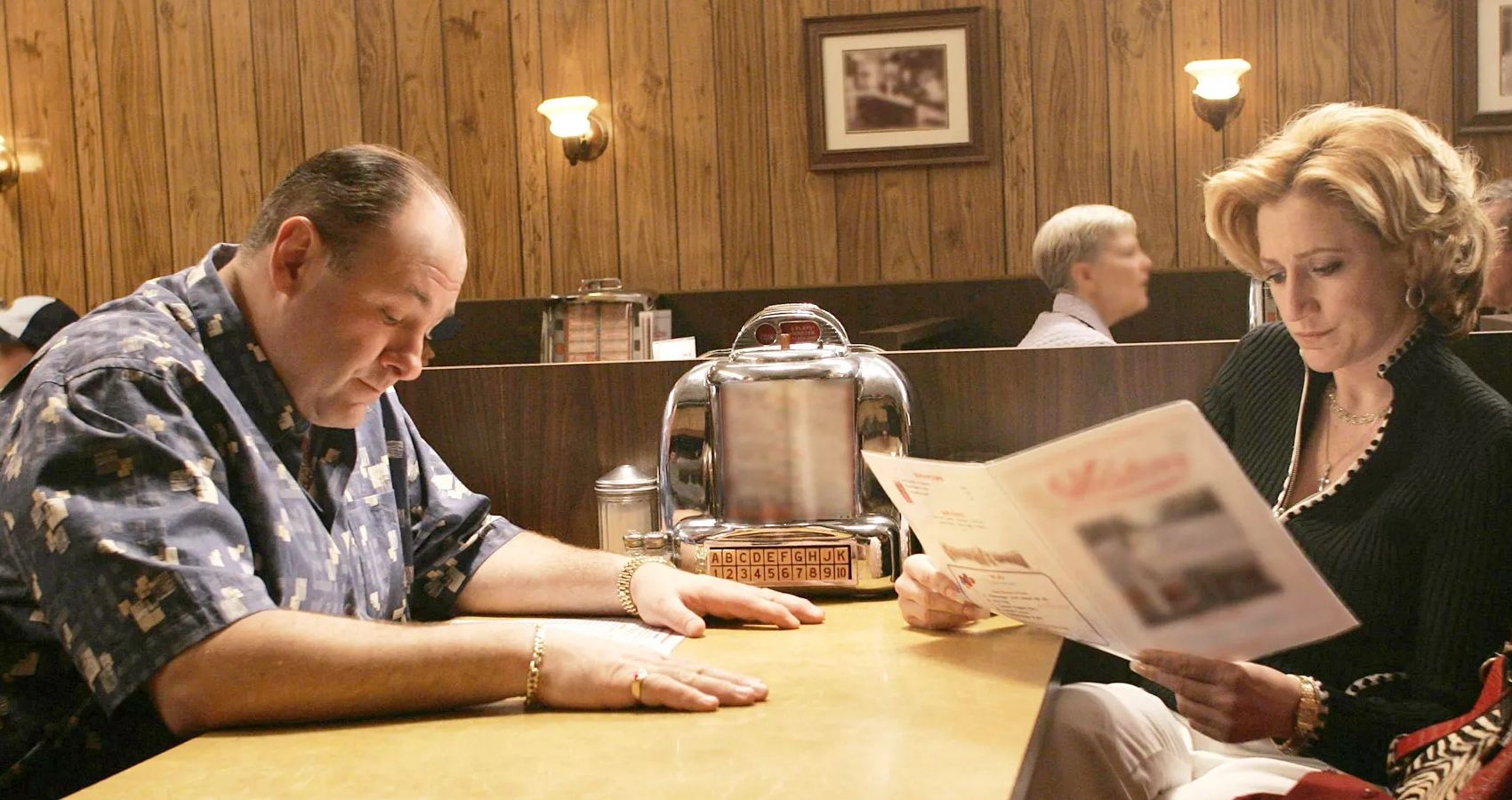It is an almost impossible task to rank the very best episodes of a show as revolutionary as The Sopranos was. Easily considered one of the most remarkable series of all time, the crime mob drama set in New Jersey followed the life of Tony Soprano and his many cohorts. It left us with an almost perfect catalog of episodes, each complimenting the other in nearly perfect sync. The tone, style, and depth introduced a new perspective to television, allowing it to reach the same emotional and psychological heights of other art forms like theater and cinema. It's impeccable humor, fascinating characters, and poignant social commentary have allowed it to remain just as relevant today as it was when it originally aired. In the predicament of trying to find its most impressive episodes, here are the very best the show has to offer.
6 S2/E13 - Funhouse
The season two finale is considered by many to be the best one of the series (although others prefer “Whitecaps” or the iconic series finale). It’s the perfect blend of reality and surrealism, where Tony’s dreams are juxtaposed with a bout of food poisoning. This juxtaposition forms the catalyst for Tony’s acceptance of one of his closest friends, Salvatore Bonpensiero, as being an FBI informant. With this in mind, Tony and his friends decided to go on a small boat trip to “talk things over” with Bonpensiero. The episode, much like “College”, was a game-changer for television, introducing to audiences the idea that just being a main character is not enough job security, and anyone can go at any time.
5 S5/E11 - The Test Dream
The fandom and critics are split on this episode, but an in-depth look into its construction may offer a different perspective. As certain tensions begin to escalate, Tony decides to spend a night at the Plaza Hotel in New York City, only to receive information that spells great trouble for his relationship with the New York family. In this state of uncertainty and malleable forces, Tony has a series of dreams warning him of the impending doom coming for him and his associates. These premonitions are then contrasted with his other relationships, including his father, wife, and past acquaintances. Tony’s psychological depth is explored in such vivid and thorough detail that it may take a few re-watches to capture what creator David Chase attempted to do entirely. We, as an audience, take a journey through Tony’s mind, culminating in its outer reaches: his very soul. It is a haunting reminder of just how deep and rooted his (and to some extent, everyone’s) problems are.
4 S6/E1 - Members Only
The season six premiere set a new tone and pace for the series. While maintaining its comedic edge, the lighting and shot selections got darker and bleaker. Meant to signal that the end is near, it follows the struggle of Eugene Pontecorvo, a regular soldier who didn’t have much screen time or plot development before this episode, and his attempts to leave the life of crime. Meanwhile, Tony deals with the rapid decay of his uncle’s mental state and the grumblings of the New York family. By the end of the episode, both men find themselves in very different existential situations. The episode acts as a premonition for what’s ahead; a complete shift in focus and attention from the daily lives of characters to an exploration of how their own greed and sin will lead to their downfalls.
3 S1/E5 - College
Described by many critics as a turning point in television history, the episode followed Tony and his daughter Meadow going on various university campus tours. Along the way, Tony seems to have spotted a former member of his crime family turned FBI informant living on the witness protection program. Upon confirmation, Tony does what any regular mobster with a pinch for vengeance and retribution would do. The sub-plot between Tony’s wife Carmela and Church priest Father Intintola acts as a judgement for Tony’s actions; a quasi-Greek chorus made to highlight the conflict and shame this kind of living does to person both inside and outside. It removed any doubts about whether the show was going to be a conventional TV drama or a groundbreaking achievement.
2 S4/E13 - Whitecaps
The season four finale acts as a culmination of tension and anger that’s been boiling since the show’s premiere. It begins on a lighter tone, as Tony decides to buy a vacation home to spend more time with his family. However, after a not-so-pleasant conversation between Carmela and one of Tony’s mistresses, Irena, the final straw was picked and Tony is forced to move out and cancel these “happy family” plans. The confrontations between Tony and Carmela are some of the most brutal, honest, and painful depictions of marital conflicts ever put on screen, film or television. Tony’s marital problems are contrasted with his working life, where he finds himself in a dilemma between whacking or not whacking the boss of the New York family, Carmine Lupertazzi. Both these conflicts will serve as what will ultimately be the downfall of everything Tony has worked for his entire life.
1 S6/E21 - Made in America
The final episode of The Sopranos remains a cultural touchstone that defined the Golden Age of television (2000 – 2014). Directed by David Chase, it follows a conventional plot, rarely deviating from feelings of bittersweet goodbyes. Tony and his crew are vigilant to the threat posed by Phil Leotardo and the New York family, as they’re trying to snuff Phil out while he’s in hiding. There’s a dark, foreboding rummaging, almost as a sort of nervous tick. It holds no punches and explores the current state of every character in a fresh, nuanced, and subtle way, with short but poignant scenes of dialogue and wide atmospheric shots. Two scenes before the infamous restaurant montage, Tony and Paulie have a discussion on who will take charge of a business venture now that one of their capos became an informant; the grayish tone and lack of life is haunting and detached, almost as a sort of purgatory where what’s left sits and reflects. In the end, Chase chose to conclude on a paradox: an abrupt cut to black.
The interpretations of what it meant are few, but a particular theory stands out: Tony is neither alive nor dead, but forever trapped in the abrupt cut, never to be seen or mentioned ever again. It is a metaphysical interpretation, one that focuses on the real world more than the fictional, but still poignant and part of the many ideas the show regularly explored, how in the end these characters are all allegories and concepts for things we see play in our reality. Regardless, its ambiguity was nothing short of genius, and has cemented it as the subject of debate and speculation even 15 years after it aired.

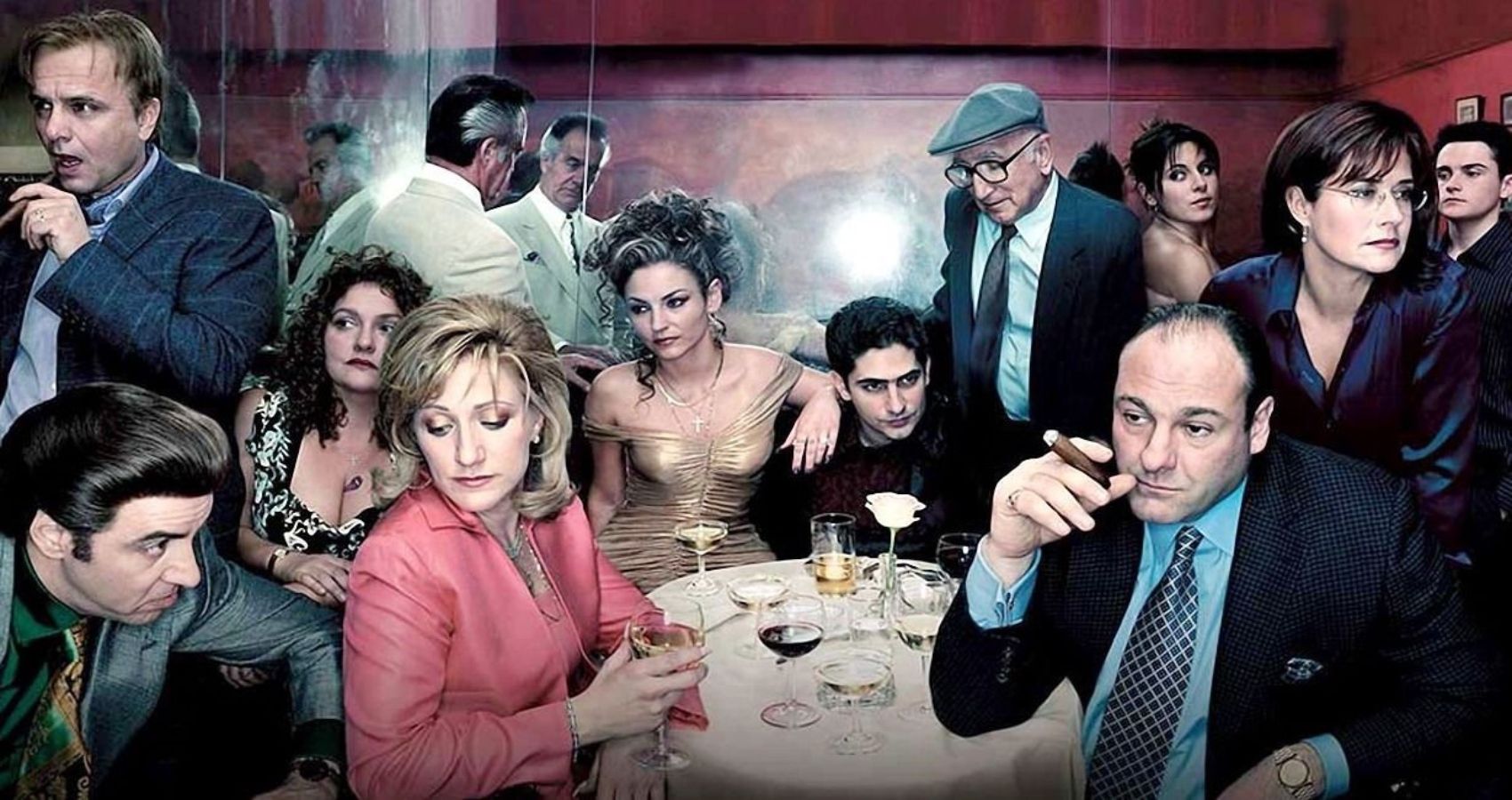
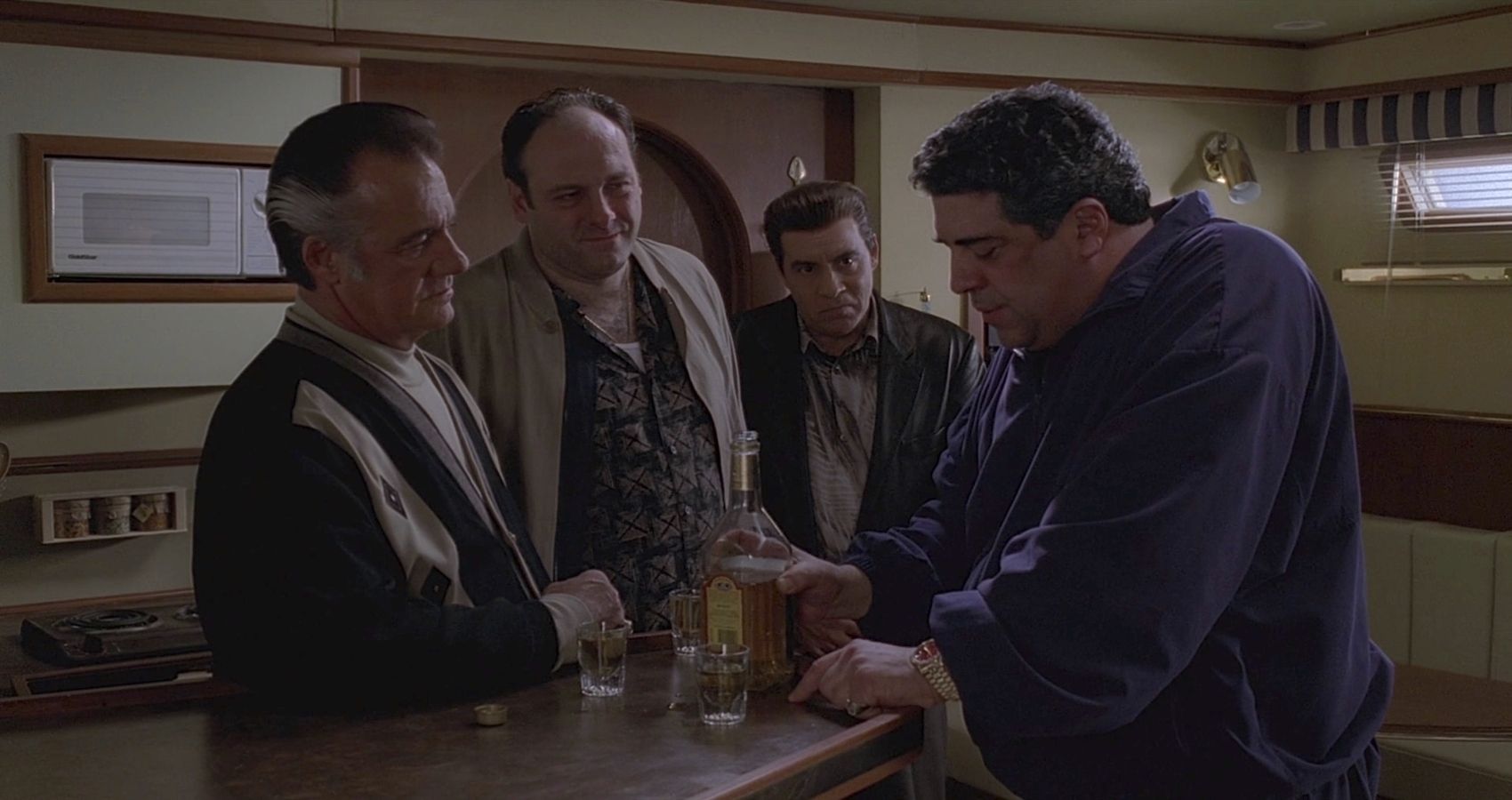
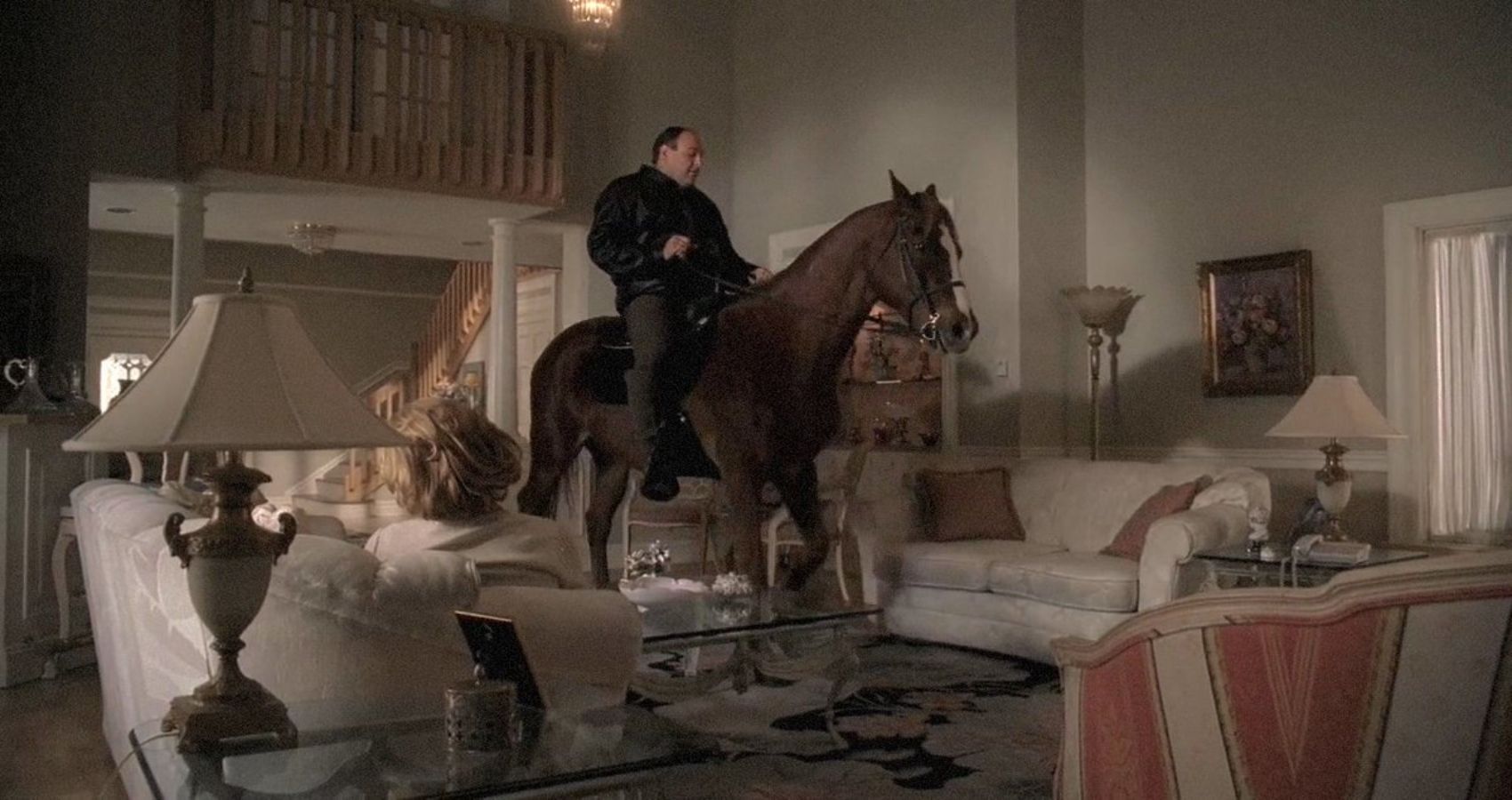
-6.jpg)
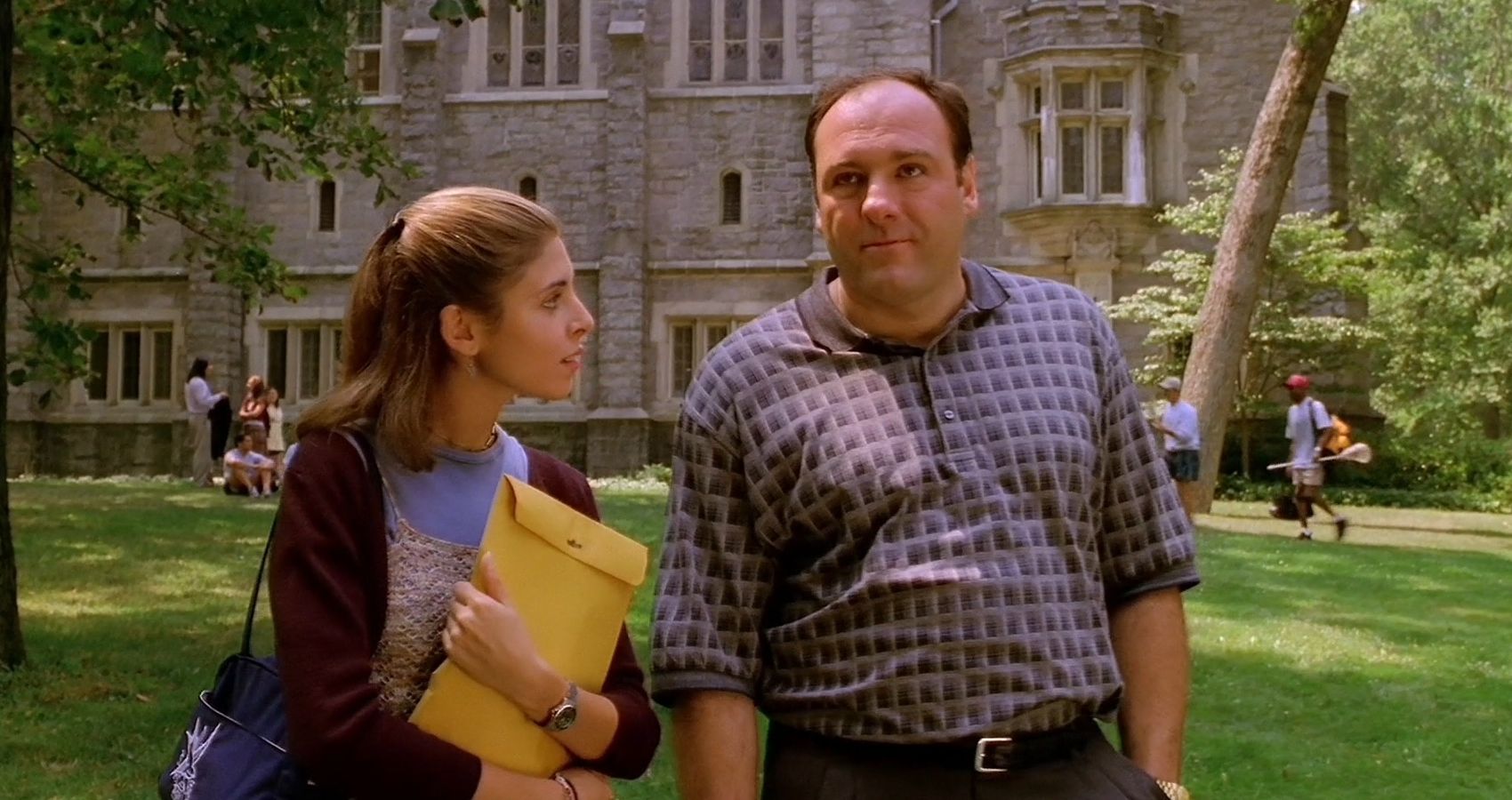
-4.jpg)
